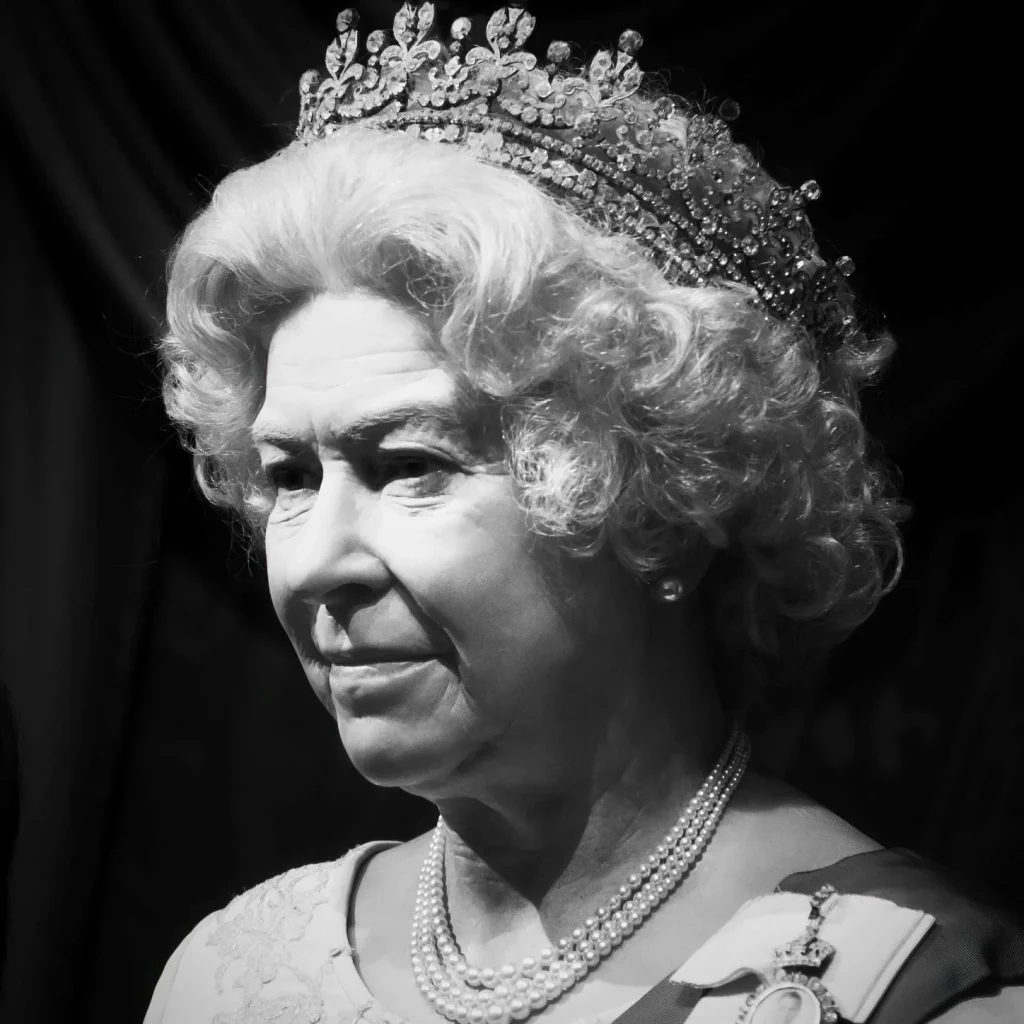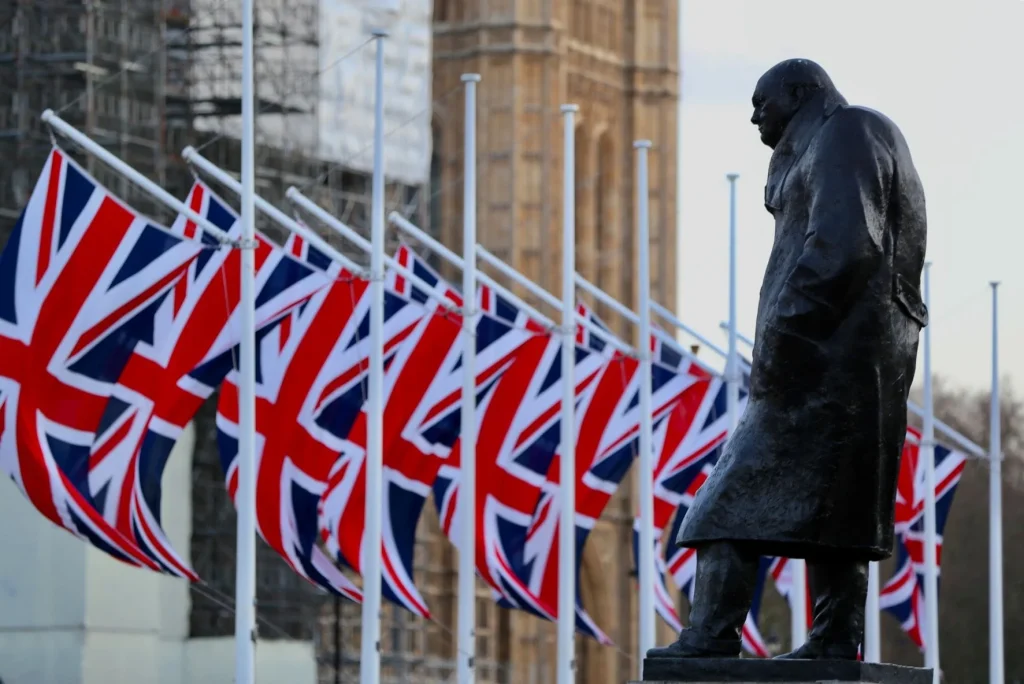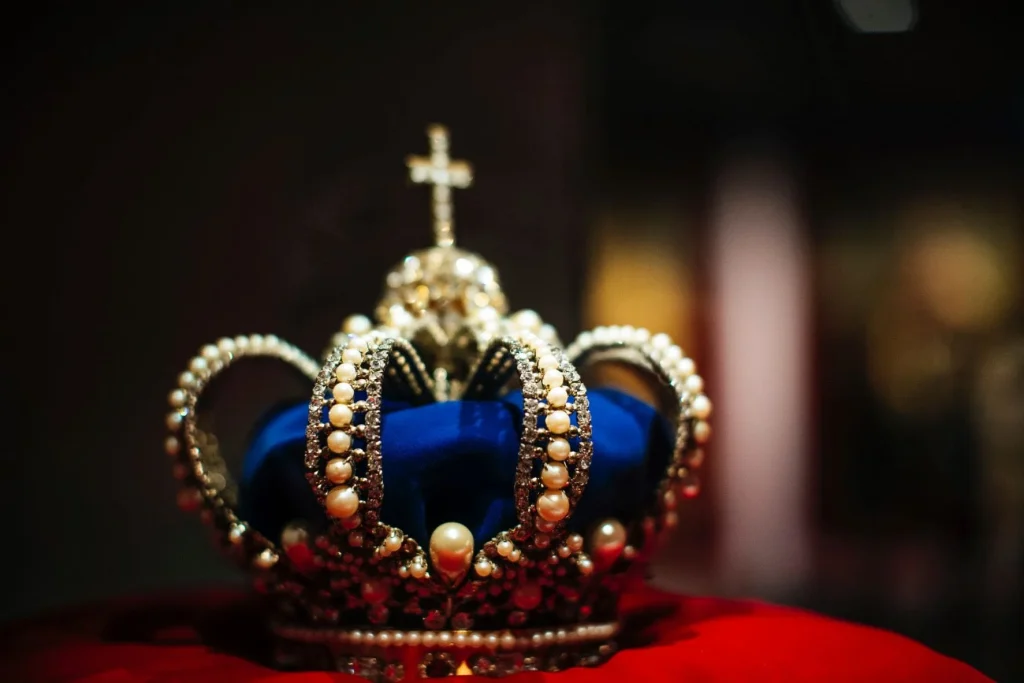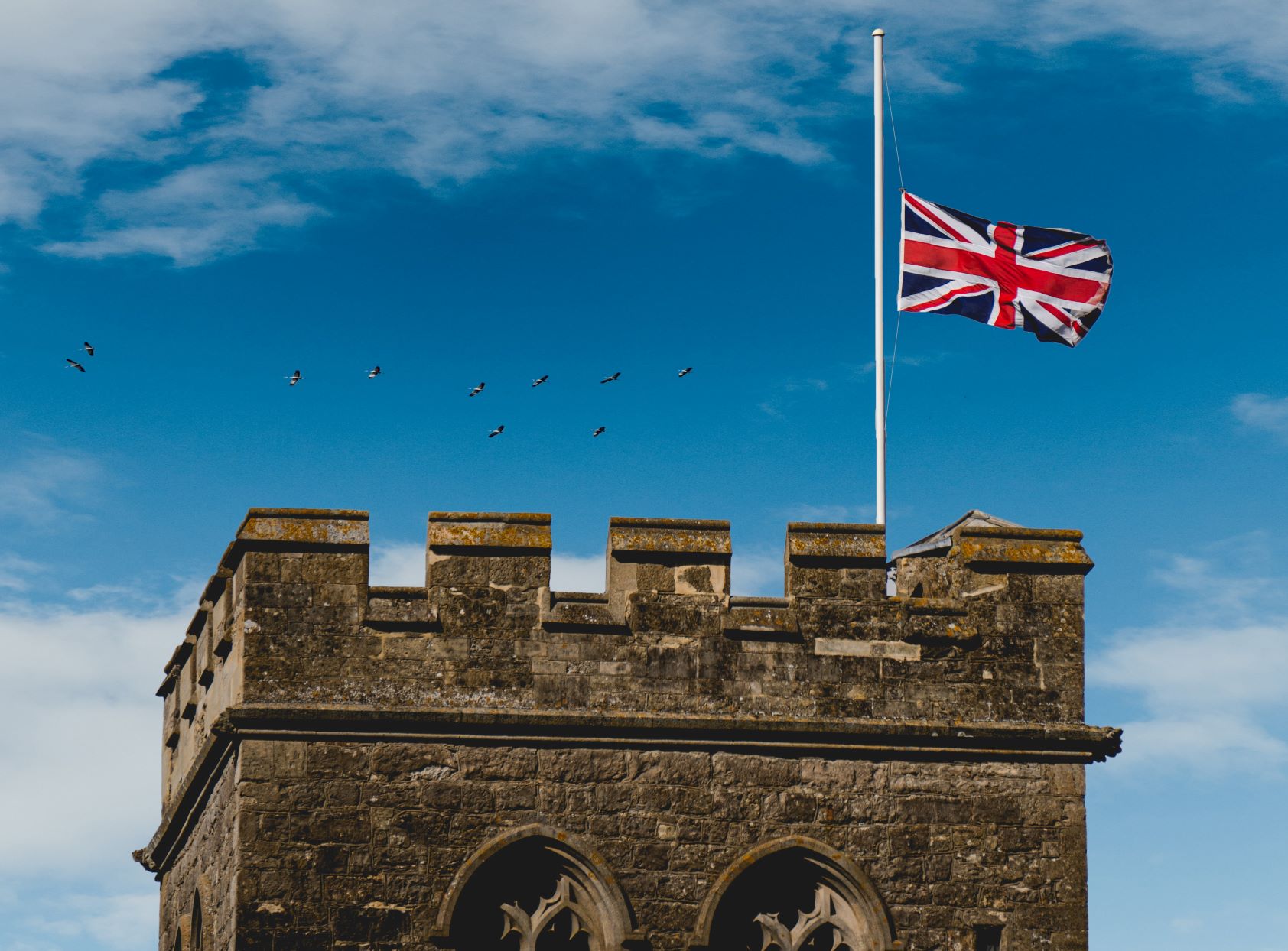Queen Elizabeth II, the beloved United Kingdom’s (UK) longest-reigning monarch died at the age of 96 on September 8, 2022.
Buckingham Palace announced the Queen’s death in a statement the following day (September 9) – hours after her family rushed by her side at her Scottish home, Balmoral Castle, when doctors were getting worried about her condition.
“The Queen died peacefully at Balmoral this afternoon,” the statement read.
Given the aging Queen’s declining health, her death is no surprise and Buckingham Palace has been planning for her passing for years now. Her funeral was held last September 19, 2022.

As the Royal Family, the UK, and the rest of the world mourn the passing of Queen Elizabeth II, many investors and speculators are asking the question: what does her death mean to the world? What is the impact of her death on the World Economy and Foreign Investments?
This article explores her impact on the UK and on the world, as well as the political, economic, and financial implications you can expect in the time after her passing. This article will also discuss how her death would specifically impact the Philippines.
History of Queen Elizabeth II
Queen Elizabeth II (Elizabeth Alexandra Mary; 21 April 1926 – 8 September 2022) was born in Mayfair, London, as the first child of the Duke and Duchess of York (later King George VI and Queen Elizabeth).
When her father died in February 1951, she became the queen of the United Kingdom and six other independent Commonwealth countries including Canada, Australia, New Zealand, South Africa, Pakistan, and Ceylon (modern-day Sri Lanka). She was only 25 when she succeeded to the throne.
She was queen regnant of 32 sovereign states during her lifetime and 15 at the time of her death. Her reign also spanned 15 British prime ministers, including the famous Winston Churchill who led Britain to victory during WWII.

Her reign of 70 years and 214 days is the longest in British history, the longest recorded of any female head of state in history, and the second-longest verified reign of any sovereign in history.
She tried to make her reign modernized and sensitive to the changing times, while still maintaining traditions associated with the crown, dropping some of its formalities and making certain historical sites and treasures more accessible to the public.
Her Impact on the UK and the World
A few can remember what life was before Queen Elizabeth’s reign. Nonetheless, her long reign was marked by significant changes in the UK’s power, her people’s lives, as well as how Britain and the monarchy are perceived and portrayed abroad.
It was during her reign that Britain and the world went through major political changes – from the devolution in the UK, the decolonization of Africa, and the recent withdrawal from the European Union, popularly known as Brexit.
When Elizabeth succeeded to the throne after WWII, Britain still had a substantial empire, colonies, and dependencies. But, many of these changed during the 1950s and 1960s when many of these colonial possessions gained independence and the British Empire evolved into the Commonwealth of Nations instead, making her the Head of the Commonwealth. The Commonwealth currently consists of 54 independent states (the majority were previously under British rule) which aim to share goals of prosperity, peace, and sovereignty.
Throughout the last 70 years, Queen Elizabeth may have been the most important diplomatic representative of London, having charmed many heads of state through diplomatic visits during her reign. Her many historical visits and meetings include visits to Germany in 1965 (the first Monarch visit in 50 years), China in 1986, Russia in 1994, and the Republic of Ireland in 2011. She had also met with five popes in her ruling.
Her popularity and charisma have helped Britain boost its foreign relations.
Despite being apolitical and majorly conferring with her Prime Ministers for counsel, the Queen gained the public’s further approval in 2012 when she cut back on the financial support that the Royalty receives from the British government. This was so funding could be reallocated to other sectors in need such as education and public health.
Moreover, the Royal Family and the Queen’s popularity has significantly attracted tourism to the UK, bringing around £19 billion ($22 billion) of income per annum, most of which comes from tourism. How the Queen’s death would affect the UK’s source of income is still up for speculation.
How the Queen’s Death Affect the World Economy and Foreign Direct Investments
The United Kingdom has always been a major economic power in the world. Its influence and network span dozens of countries including other superpowers like the United States and its former colonies. Thus its economic condition ripples throughout the world.
The British pound has already been on a downward trajectory over the past several months, and the Queen’s death may just further influence this as the currency hit a 37-year low of $1.14 in the past several days.
But, what does this mean for the UK and the wider economy? Is it necessarily bad?
Not necessarily. A weaker British pound allows UK manufacturing businesses to export goods at a cheaper rate to foreign buyers, thus encouraging more sales. A weaker currency may also lead to the rise of the FTSE 100 Index (one of the most important indexes covering the London Stock Market) as 70% of the revenues garnered from these 100 UK companies come from overseas.
By this logic, the weak currency presents amazing opportunities in the stock market for long-term equity investors. Stocks in weak currencies generate as much as two to three times more real returns than stocks in strong currencies.
This may encourage investors to bring in more foreign direct investments into the UK economy to capitalize on the opportunities.
The downside of this, however, is that weaker currencies often result in inflation in the country. British people have been suffering from increasing energy, food, and fuel costs, as well as the overall cost of living in the area. The weakening purchasing power of the British Pound may just drive further economic inequality in the country.
Moreover, the Queen’s death has also prompted a 10-day mourning period, causing the UK’s stock markets, banks, and other services to be closed intermittently. This gap in economic activity is estimated to cost the UK’s GDP $1-7 billion which could likely send the country into recession.
King Charles’ Rise to Power and the Problems He Will Be Facing

King Charles III succeeded his mother, Queen Elizabeth II, on the throne. Many speculate that the British monarchy may have lost its relevance and appeal following the queen’s death. Shadowed by a checkered past, especially with the highly publicized marital issues and divorce with the publicly beloved Princess Diana in the 1990s, King Charles III lacks the appeal and affection that the British public has for Queen Elizabeth II.
He has the incredible task of becoming the beacon of stability his mother was as Britain struggles with such political and economic uncertainty.
The King is known to have strong stances on various socio-economic and environmental issues, especially on poverty and climate change. How he would handle such problems, as well as his dynamics with the newly-appointed Prime Minister Liz Truss would highly determine the world’s perception of the monarchy and the UK economy as a whole. This would directly impact direct foreign investment flow, whether inside or outside the country.
Britain’s Decline in Global Power and More International Frictions Ahead
The UK has already been facing an obvious decline in global influence, including a shrinking economy and military prowess, and the Queen’s death may just be the blow that worsens the country’s situation.
The passing of the Head of the Commonwealth has led 15 Commonwealth states, like Australia and New Zealand to lessen their ties as former colonies of Britain. In fact, many Scottish nationalists are raising once again the question of gaining independence from Britain, following Scotland’s failed independence referendum in 2014. This could further the divide within the United Kingdom (made up of England, Scotland, Wales, and Northern Ireland ) as many citizens worry about the stability of the relationship between the states.
The Economist Journal of London expects that a number of the Commonwealth states would end ceremonial ties with King Charles III and officially become republics.
In fact, ending Queen Elizabeth’s 70-year reign may signify the West’s retreat from global dominance as China continues to rise in the recent decades, and North America and Europe suffer economic downturns.
As America, Britain, and their European allies strengthen their opposition to the China-Russia alliance, the world can expect to see more economic, geopolitical, and military tensions as these superpowers battle for global superiority.
Where Should the Philippines Stand Amidst Escalating Superpower Tensions?

Even though the Philippines is physically distant from the West, it would still be affected by the growing confrontations between major states as all countries are connected via international trade.
Now more than ever is it crucial for the Philippines to push for security and diplomatic relationships with ASEAN countries to prevent conflict in the region and safeguard strategic allies. President Marcos’ recent visit to Jakarta and Singapore may well be the step towards this goal.
How the Philippines positions itself in between these political tensions could significantly affect the dynamics in Asia. This is why pushing for centrality, neutrality, and harmony across all of Southeast Asia and working closely together should be paramount.
What Do These All Mean for Filipino Investors?
Considering the volatile economic and political environments worldwide, it may serve well for Filipino investors to look out for safe and predictable investments that will offer high returns with relatively minimal risk.
Real estate is a great example of this type of investment.
How so? The land and property embedded in real estate normally appreciate in value, so your money is guaranteed to be shielded from inflation. Moreover, it is a predictable source of cash flow and passive rental income depending on the business activities you associate with the property.
All these advantages make real estate investments a great haven to put your money into.
Crown Asia is a renowned real estate developer that offers premium condominiums, houses and lots for sale across strategic locations in the Philippines. But more than that, Crown Asia properties are built with high-quality materials, as well as designed by distinguished engineers and architects to provide you with world-class properties fit for your long-term investment goals for a home or for a passive income.
What Do These All Mean for OFWs in the UK?

Since the Philippines and the UK established formal diplomatic ties in 1946, many Filipinos have gone to the UK in the hopes of greener pastures.
According to a report by the University of Bristol, there are around 40,000 Filipino nurses working in the UK as of 2021. An older report in 2019 by the National Health Service (NHS) of England found that at least 19,000 Filipinos work under the UK’s public health system as medical professionals or as support staffers.
The significant amount of Filipinos embedded in the UK workforce has made them valued workers in specific sectors, especially healthcare.
It is a well-known fact that OFWs sacrifice being away from their family in order to financially provide more for their family at home. Thus, the rising costs of basic necessities in the UK make it harder for Filipinos to save their hard-earned money.
What Can They Do?
They can put their money into investments that can protect their money from decreasing in value due to inflation. As mentioned previously, real estate is a great way to safeguard the value of your savings.
Real estate, however, does not only serve as a possible investment in the most financial sense of the word. It can also be simply an investment in providing your family with a home to comfortably live in.
Crown Asia, as a premier real estate developer, provides houses and lots for sale that are equipped with safe and master-planned communities. They are located in key cities and provinces that are accessible to schools, malls, hospitals, and other essential infrastructures. If you are interested, check them out here.
Queen Elizabeth II’s death implies so much change not just in the UK but also in the world. While the British monarchy may continue to exist in the future, it certainly needs to be more aggressive in modernizing its ways in order to find its way in the 21st century and preserve its influence worldwide. As investors, economic and political turbulence and shifts may definitely come, so it would be best to prepare and ensure that your money is locked in investments that can withstand short-term volatility.
Related Blogs: Impacts of the US Recession on the Philippine Economy


